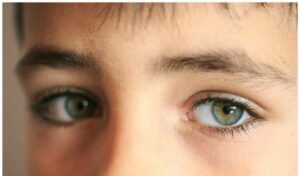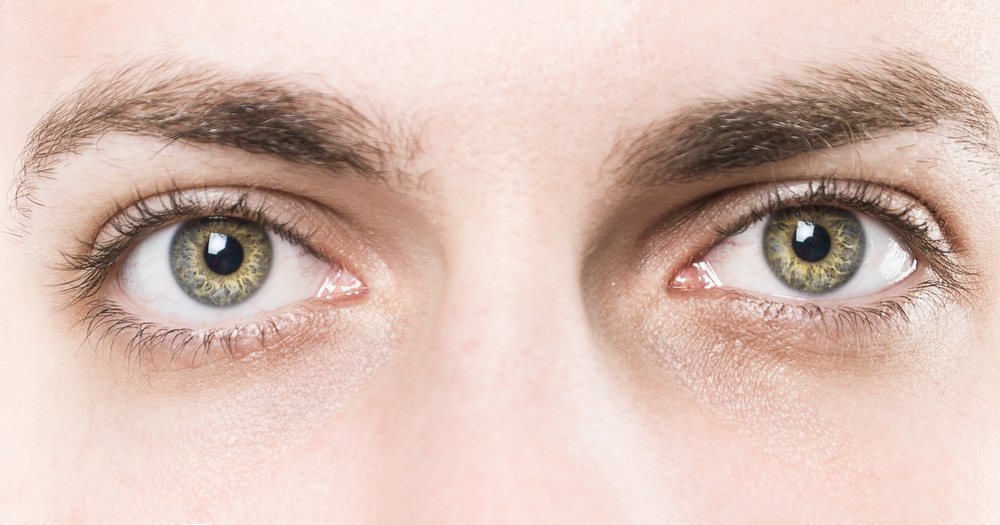If you have ever suffered a concussion, you may be at risk of developing a cataract. A new study has shown that individuals who have had a concussion are more likely to develop this type of cataract. If you are concerned about your risk, it is important to speak with your doctor. In this blog post, we will discuss the symptoms of concussion cataracts and what you can do to protect yourself.
What Is A Concussion Cataract?
 A concussion cataract is a type of traumatic cataract that can occur after a head injury or other trauma to the eye. This is often seen in young athletes who participate in contact sports such as football, hockey, or boxing. A concussion cataract usually develops within a few weeks or months after the injury and can cause vision problems.
A concussion cataract is a type of traumatic cataract that can occur after a head injury or other trauma to the eye. This is often seen in young athletes who participate in contact sports such as football, hockey, or boxing. A concussion cataract usually develops within a few weeks or months after the injury and can cause vision problems.
It is believed that people who sustain a concussion are at risk of developing a concussion cataract. This is because the violent shaking of the brain during a concussion can damage the eye’s lens, leading to the formation of a cataract.
While many people associate cataracts with older age, a concussion cataract can occur at any age. If you have suffered a head injury or other trauma to the eye, it is important to see an eye doctor for a comprehensive exam. Early diagnosis and treatment are essential for preventing vision problems.
If you or someone you know has suffered a head injury, be sure to watch for signs of a concussion cataract. If you experience any vision problems, be sure to see an eye doctor right away. Early diagnosis and treatment are essential for preventing vision problems.
What Are The Symptoms?
There are several symptoms associated with concussion cataracts. They include:
Blurry vision
This is the most common symptom and is usually the first one that people notice. It can happen immediately after the injury or gradually over time.
Sensitivity to light
This can make it difficult to be in bright environments and may cause headaches. People with concussion cataracts may also find that their eyes water more.
Double vision
This is when a person sees two images of a single object. It can be temporary or permanent depending on the severity of the injury. For instance, if the cataract is only in one eye, the brain may learn to ignore the image from that eye and the person will only see double vision when they close the other eye.
Poor night vision
This can make it difficult to drive at night or do other activities in low light conditions. Poor night vision is very common in people with concussion cataracts.
Glare and halos around lights
 Sometimes glare and halos around lights are the first sign that a person has developed a concussion cataract. The reason for this is that the impact of a concussion can cause changes in the eye’s lens, resulting in these symptoms.
Sometimes glare and halos around lights are the first sign that a person has developed a concussion cataract. The reason for this is that the impact of a concussion can cause changes in the eye’s lens, resulting in these symptoms.
These symptoms are usually not painful but can be bothersome and make it difficult to see clearly. If you experience any of these symptoms, it is important to see an eye doctor right away so that they can determine if a concussion cataract is a cause. Otherwise, it can lead to other complications. So do not hesitate to ask for professional help.
What Causes Concussion Cataracts?
Concussion cataracts are caused by a direct blow to the head or by whiplash. This can cause the lens of the eye to become dislodged and move out of place. In some cases, the lens may even be completely torn from the eye.
Concussion cataracts can also be caused by a sudden change in pressure, such as when diving into water or flying in an airplane. This can cause the lens to become dislodged and move out of place. In some cases, the lens may even be completely torn from the eye.
In addition, there are some risks that can increase the chances of developing concussion cataracts. These include being over the age of 60, having a history of head injuries, and having certain medical conditions such as diabetes or high blood pressure.
These are overall causes for concern because they can cause damage to the eye and lead to vision problems. It is important to be aware of the symptoms of concussion cataracts so that you can seek treatment as soon as possible.
What Are Some Complications?
There are several complications associated with concussion cataracts. The most common is increased intraocular pressure or IOP. This can lead to glaucoma, a condition in which the optic nerve is damaged. If left untreated, glaucoma can cause blindness. Other complications include:
- Retinal detachment: This is when the retina, the light-sensitive layer of tissue at the back of the eye, becomes separated from the rest of the eye.
- Corneal abrasion: This is a scratch on the clear outer surface of the eye.
- Lens dislocation: This is when the lens of the eye moves out of its normal position.
- Optic nerve damage: This is when the nerve that carries information from the eye to the brain is damaged.
These are some common complications and it is important to be aware of them. However, it is also important to remember that most people who experience a concussion will not have any long-term effects. If you or someone you know has had a concussion, it is important to seek medical attention right away and follow the instructions of medical professionals.
More often, it is the person’s family and friends who notice the changes in behavior or personality first. If you have concerns about someone you know, talk to him or her about your concerns and encourage that person to see a doctor.
How Are Concussion Cataracts Diagnosed?
 Concussion cataracts are usually diagnosed during a routine eye exam. Your doctor will ask you about your medical history and any recent head injuries. They will then examine your eyes with a light and magnifying glass. If they suspect a concussion cataract, they may order additional tests, such as an ultrasound or CT scan of your eye.
Concussion cataracts are usually diagnosed during a routine eye exam. Your doctor will ask you about your medical history and any recent head injuries. They will then examine your eyes with a light and magnifying glass. If they suspect a concussion cataract, they may order additional tests, such as an ultrasound or CT scan of your eye.
There are also some other tests that can be done to diagnose a concussion cataract. One is called an “A-scan.” This test uses sound waves to measure the length of your eye. It can help your doctor determine if there is a change in the shape of your eye that could be caused by a concussion cataract.
Another test is called a “B-scan.” This test uses X-rays to create a picture of the inside of your eye. It can help your doctor see if there is any bleeding or swelling in your eye that could be caused by a concussion cataract.
So the diagnosis can be made with a careful clinical history, a thorough examination, and some special tests if needed. If you have any concerns that you may have a concussion cataract, be sure to talk to your doctor. They can help you determine if you need any additional testing or treatment.
How Can It Be Treated?
There are a few ways that concussion cataracts can be treated, but the most common is surgery.
This is usually a very quick and easy procedure that can be done in an outpatient setting. Recovery time is usually pretty short, and most people will notice a significant improvement in their vision after the surgery. In some cases, glasses or contact lenses may be needed to help improve vision even more.
In addition, there are some new treatments that are being developed that may help to prevent or delay the development of concussion cataracts. These include things like:
- Eye exercises
- Special lenses
- Medications
However, more research is needed to determine how effective these treatments will be. It is believed that they may help to improve vision in some people, but it is still too early to say for sure.
If you have suffered a concussion, it is important to see an eye doctor as soon as possible. They will be able to check for any signs of a cataract and begin treatment if one is present. With proper treatment, most people will be able to regain normal vision.
Conclusion
To conclude, concussion cataracts are a serious condition that can result from a head injury. If you suspect that you or someone you know has a concussion cataract, it is important to seek medical attention immediately. With proper treatment, most people make a full recovery. Also, you should avoid activities that could put you at risk for another head injury.
If you have any questions or concerns, please feel free to speak with your doctor. They can provide you with more information and resources on concussion cataracts.
You can also reach out to Eye Mantra. At EyeMantra we have a team of experienced eye surgeons, who will be happy to answer your any questions on cataract surgery, cataract surgery cost, cataract lens cost for different cataract surgery types- Phacoemulsification, MICS & Femto Laser Cataract. Call us at +91-9711116605 or email at eyemantra1@gmail.com for inquiries.


